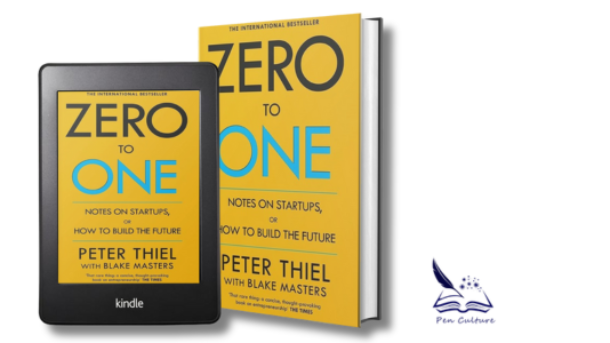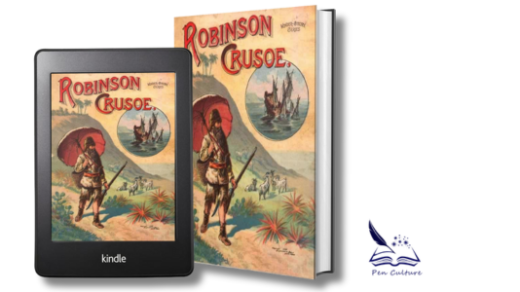Zero to One by Peter Thiel, co-authored with Blake Masters, is a groundbreaking business book that was published in 2014. It provides a contrarian view on entrepreneurship and innovation, based on Thiel’s Stanford University lectures. The book challenges conventional wisdom, advocating for businesses to create entirely new ideas rather than simply improving existing products. Zero to One focuses on monopolies, contrarian thinking, and visionary progress. It offers fresh insights for entrepreneurs looking to build transformative companies.
Thesis Statement
In Zero to One, Peter Thiel argues that true innovation occurs when entrepreneurs create something entirely new (zero to one). They should focus on this rather than just making incremental improvements (one to n). Through his provocative ideas on monopolies, competition, and progress, Thiel presents a compelling framework for building successful startups that aim to shape the future.
Summary of the Key Ideas
The central premise of the book is that creating something new is the path to lasting success. Thiel emphasizes the importance of monopolies, not competition, in fostering innovation. Some of the key ideas explored in the book include:
- Monopolies vs. Competition: Thiel posits that monopolies are beneficial because they incentivize innovation, while competition can be destructive. He advises entrepreneurs to dominate a niche and build businesses that stand alone.
- Contrarian Thinking: The best entrepreneurs are those who think differently from the masses. Thiel encourages readers to seek out “secrets” or untapped opportunities that others overlook.
- Definite Optimism: Thiel advocates for a future-oriented mindset. Entrepreneurs create a clear vision and take deliberate steps to achieve it.
- The Power Law: Thiel explains that venture capital follows a power law. Only a few startups will achieve exponential success. Those outliers will account for most of the rewards.
Analysis and Evaluation
Concepts and Theories: Thiel’s ideas challenge mainstream thinking, particularly his argument that competition stifles innovation. His call for entrepreneurs to create monopolies is bold. He urges them to do something so unique that no one else can compete. This idea is controversial. These fresh perspectives make the book stand out, pushing readers to think critically about how they approach business.
Writing Style: Thiel’s writing is concise, engaging, and direct. His philosophical approach to business is balanced with practical insights, although some may find his tone overly prescriptive. Still, the clarity of his writing makes complex concepts accessible, even for readers without a business background.
Themes: The central theme of Zero to One is the difference between innovation. Innovation means creating something new. The theme also covers improvement, which means enhancing what already exists. Thiel argues that true progress is only possible through innovation. Another prominent theme is thinking outside the norm—Thiel encourages entrepreneurs to find unique insights, or “contrarian truths,” that others miss.
Appeal: The book is highly relevant for aspiring entrepreneurs. This is especially true for those in tech or industries looking to disrupt the status quo. It will also resonate with readers interested in economic theory, philosophy, and future-oriented business strategies.
Strengths and Weaknesses
Strengths:
- Originality: Thiel’s arguments are highly original and challenge conventional business wisdom. His call for monopolies, and his distinction between zero to one and one to n, are particularly thought-provoking.
- Real-Life Examples: Thiel draws from his experience as a co-founder of PayPal. He was also an early investor in Facebook. These experiences give credibility to his arguments.
- Conceptual Clarity: Thiel clearly articulates his ideas, making complex topics easy to understand.
Weaknesses:
- Idealism: Some of Thiel’s ideas, particularly his view on monopolies, is too idealistic. They also appear out of touch with concerns about corporate dominance in modern economies.
- Lack of Practical Guidance: While the book is rich in high-level ideas, it provides less emphasis on actionable steps. It focuses less on execution. This may leave some readers wanting more practical advice.
Conclusion
Zero to One is a bold and intellectually stimulating book. It offers a fresh perspective on entrepreneurship, innovation, and the future of business. Peter Thiel’s emphasis on monopolies is noteworthy. He is committed to contrarian thinking. He also champions radical innovation. This makes the book a must-read for anyone looking to build a groundbreaking startup. Some of his ideas may be debated. Nonetheless, the book’s core message is about creating something entirely new. This makes it an essential read for anyone in the entrepreneurial world.
Rating: 4.5/5




